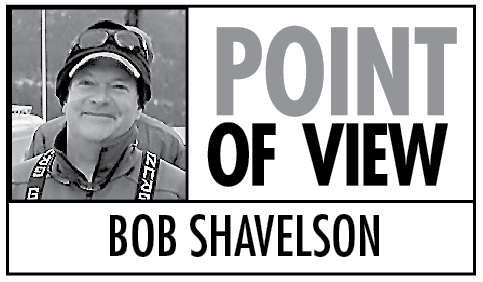I like Chris Story. He’s funny, he raises his family here, and he drives dollars into our local economy. But I like him for another reason: He has the passion of his convictions to not only speak his mind, but also to act on it. I wish there were more like him in our community.
So I hope that prelude gives me the leg room to explain why a few limits on plastic bags in Homer are not some full-throated assault on our personal freedoms. It may not be a great policy decision. But I don’t feel less “free” because I can’t fill my cupboard with plastic grocery bags.
“Freedom” is plainly more than a word; it’s a value deeply woven into our collective consciousness. The notions of freedom are engrained in our being as Americans, and they trace back to our Constitution, the Revolution, the Boston Tea Party, and even the Magna Carta, when we ripped off the oppressive yoke of the King and stood up for individual rights and liberties.
America is founded on individualism and personal freedoms, and for Alaskans, those values are perhaps more deeply embedded, because we are, after all, the “Last Frontier.”
But with every right comes an obligation, and despite any romantic notions of “freedom” we might put forward, the fact is we rely on basic rules and safeguards to create the predictability needed for successful economies and communities. In other words, if everyone had complete “freedom” — and made up their own rules — we’d live in utter chaos, where basic decisions about business investment and community enhancement would be impossible.
But it’s easy to pick on government.
I recall a day when my dad was still alive. I talked to him after I had just lost an appeal before the Kenai Peninsula Borough planning commission on whether a gravel pit should be developed immediately adjacent to the Anchor River (the river later flooded the gravel pit, resulting in tens of thousands of public dollars needed to restore the lost salmon habitat). I spoke about the loss of salmon habitat across the globe, and asked “Why does government need to continually repeat the mistakes we’ve seen elsewhere?”
He asked “what do you mean?” My dad was a smart guy, but a sarcastic guy, too, so I sensed feigned ignorance and retorted, “What do you mean, what do I mean?”
He said “As individuals, we repeat our mistakes time and again. So what makes you think the institutions we create won’t do the same?”
Then he offered the famous quote attributed to Winston Churchill: “Democracy is the worst kind of government, except for all the rest.”
Those words took a minute to sink in, but they shaped my world view forever.
As I’ve wrestled with the role of government for the last 25 years, I’ve learned all too well our governments are messy, inefficient, and often wasteful reflections of the people they represent. There’s popular discontent with the generic notion of “government” these days, and for good reason.
But government exists for a basic reason: We need to manage an increasingly populated society. We didn’t need stop signs until we had more cars on the road. We didn’t need leash laws in town until more dogs bit more kids. We didn’t need a public sewer system until, well, you get the picture.
I don’t think the plastic bag ban reflects the most pressing problems we have as a community. But I also don’t think it reflects some wild-eyed over reach by “big government” to control our lives.
When I think about the loss of my personal freedoms, I think about why I have to pay tens of thousands of dollars a year to ensure my family has basic health care. And I think about why we spend so much money on wars abroad when we don’t spend a fraction of those dollars educating our kids or taking care of our veterans at home.
These are some of the real assaults on our freedoms we’ll need to work together to resolve.
Bob Shavelson is a Homer resident.


